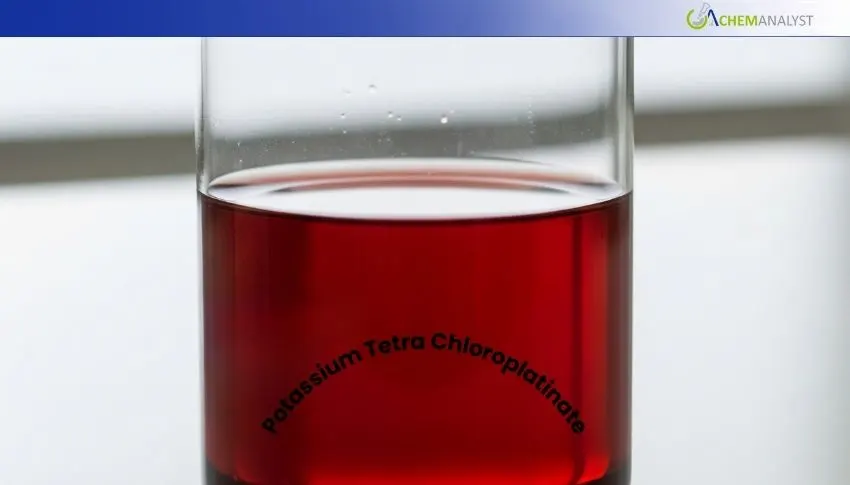Welcome To ChemAnalyst

Global Potassium tetra chloroplatinate markets are set to decline through August 2025, driven by China’s persistent deflation, surplus supply, and weakened industrial demand. Prices fell across China, Europe, and the US, further pressured by improved logistics, reduced freight surcharges, and inventory liquidation. While pharmaceutical and catalyst producers benefit from lower input costs, volatility complicates procurement planning. With China’s industrial slowdown persisting, the outlook remains bearish through Q4 2025, though any production disruptions or trade tensions could rapidly shift pricing dynamics.
Global Potassium Tetra chloroplatinate market is expected to see a steady dip in the second half of August 2025, with prices dropping in major trade markets as China's persistent deflation recharts specialty chemical price directions globally.
Potassium Tetra chloroplatinate is a key catalyst precursor used in pharmaceuticals production, petroleum refining, and electronics manufacturing. The platinum salt compound energizes key chemical reactions in industries worth hundreds of billions of dollars per year, and thus its price trend is a key determinant of industrial wellness. Existing market turmoil is a result of China's producer price index decreasing for more than 24 months consecutively, resulting in a deflation cycle affecting specialty chemicals like potassium Tetra chloroplatinate to a large extent.
Recent price data indicate sensational regional fluctuations in the cost of potassium Tetra chloroplatinate. Domestic Chinese prices fell month-on-month in August 2025, and European markets also fell on similar tracks. US import prices of potassium Tetra chloroplatinate declined as domestic consumers could seek refuge in cheaper Chinese imports. The 0.83% appreciation of the yuan relative to the US currency in August actually helped fuel this pressure by increasing import parity for Chinese producers of potassium Tetra chloroplatinate.
Supply chain normalization contributes to pressures on prices in markets for potassium Tetra chloroplatinate. These giant Chinese ports of Ningbo and Tianjin returned to normal after trade truce extension, cutting 18-22% of freight surcharges. Supply of containers improved significantly, with lead times for shipments of potassium Tetra chloroplatinate dropping from 8-10 weeks to 4-6 weeks. This efficiency in logistics erased risk premiums artificially driving prices in Q2 2025.
Liquidation of inventory drives potassium Tetra chloroplatinate price decreases as market participants off spec positions accumulated during tariff uncertainty. Chemical distributors who stockpiled anticipating midstream shortages now experience cases of over-supply, driving high-volume inventory turnover at prices below the market. This condition was most difficult in potassium Tetra chloroplatinate markets where storage charges and handling requirements drive long inventory positions to be costly.
Downstream producers of drug and catalysts react differently to declining prices of potassium Tetra chloroplatinate. Though lower input costs increase margins for specialty drug producers, price fluctuation makes procurement planning in the long term difficult. Makers of vehicle catalysts produced from derivatives of potassium Tetra chloroplatinate have lower costs but are wary of supply chain stability.
Market outlook for potassium Tetra chloroplatinate likely to remains bearish through Q4 2025. China's industrial weakness shows no signs of abating, with factory gate prices continuing their deflationary trend. However, any disruption to Chinese production capacity or renewed trade tensions could quickly reverse current pricing dynamics, making this market particularly volatile for strategic buyers.
We use cookies to deliver the best possible experience on our website. To learn more, visit our Privacy Policy. By continuing to use this site or by closing this box, you consent to our use of cookies. More info.
